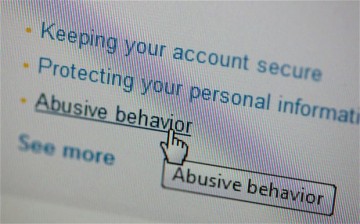 Blogging is a valuable aspect of many peoples careers. Lawyers, librarians, teachers and students wanting to expand their positive online footprint, should create a blog in order to contribute to their chosen profession. Blogging might be most essential within the field of journalism. The internet is the greatest tool to quickly broadcast your information around the world. Many young journalists seek to make their name by writing online.
Blogging is a valuable aspect of many peoples careers. Lawyers, librarians, teachers and students wanting to expand their positive online footprint, should create a blog in order to contribute to their chosen profession. Blogging might be most essential within the field of journalism. The internet is the greatest tool to quickly broadcast your information around the world. Many young journalists seek to make their name by writing online.
One of the positive aspects of blogging is sharing your ideas with the surrounding community. The ability to comment on blogs opens up debate which can expand the minds of both the author and the reader. Sadly the internet standard of free speech sometimes backfires. Internet trolls believe in their rights to free speech supersede the rights of the author to encourage rational debate. Female bloggers have an extra difficult time with trolls, as the hate they spew tends to be more violent in nature.
The Pacific Standard published a piece by journalist Amanda Hess about the nature of threats women bloggers regularly receive on the internet. After receiving a string of very personal tweets that promised to kill her, Ms. Hess phoned the police only to be asked “what is Twitter” by the officer taking the report. The distant nature of the internet can cause threats to seem like they shouldn’t bother the recipient as attacks are probably not going to happen. Instead of internet threats coming off as meaningless they are personal and intimate. Texts and tweets are received by the victim while they are in their private homes. Amanda Hess describes twitter as,“It sits in my back pocket wherever I go and lies next to me when I fall asleep”. As with cyberbullying, online trolling affects the victim around the clock and they can not escape it.
While women and men use the internet in equal percentages,72.5% of harassing incidents are reported by women. In Canada, there is no specific Cyberstalking legislation. Even if no physical harm comes of online harassment the emotional toll is heavy. Online harassment also extracts an financial toll on its victims. People who experience online harassment spend countless hours recording the threats in case they need to take legal action.
Anonymous online threats are largely ignored by law enforcement. The difficulty lies not in tracking down the perpetrator but in defining the threats as a crime. Worst of all these threats and stalkers scare and intimidate women out of maintaining a blog, an act necessary for professional development in many different fields.
I personally have experienced online threats. After writing a travel blog about my study aboard, I started to receive anonymous comments in which the user threatened me and called me vile names. While I continue to blog, those few comments were enough to get me to reconsider my blog entirely.
Have you experienced online threats or harassment? Do you think that Canada should add Cyberstalking legislation like the United Kingdom? Share your stories in the comments below.


People said…